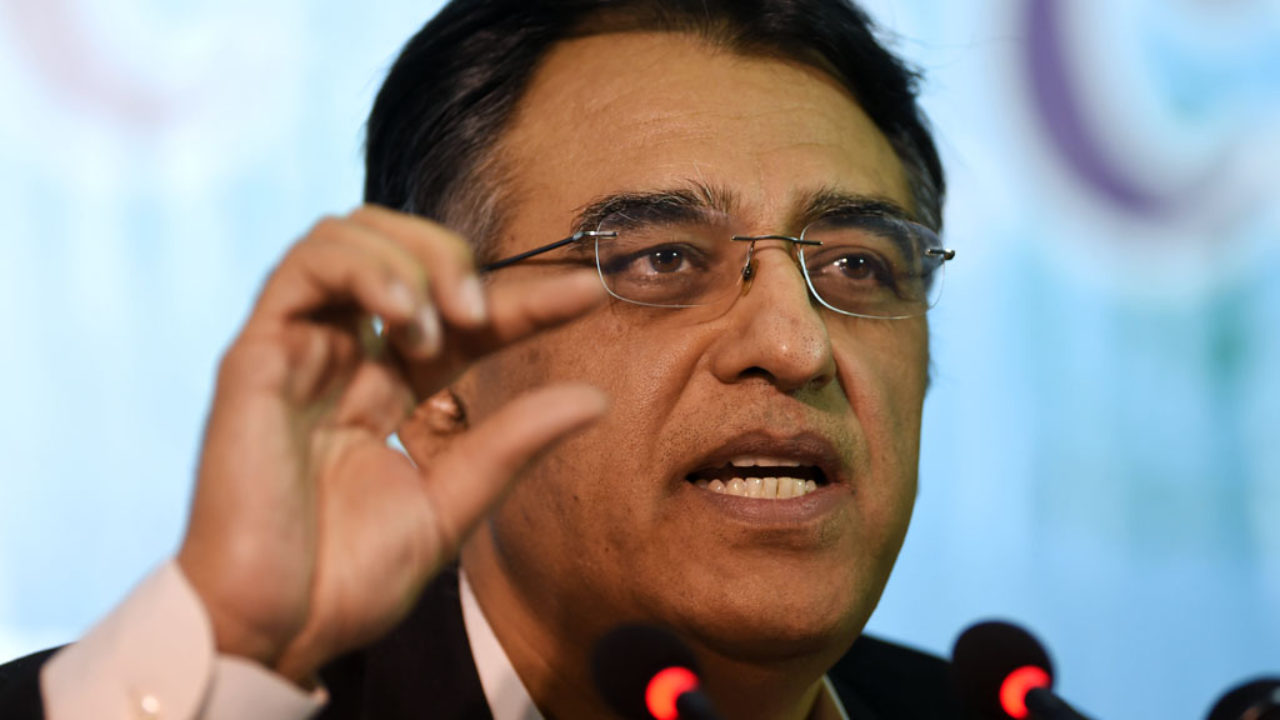
The recent decision to increase petroleum prices was defended by the government. The price was increased up to 6.45 percent but the Oil and Gas Regulatory Authority (OGRA) had proposed double the price increased, however, that was partially passed on to the consumers.
State Bank of Pakistan (SBP) organized an event on which Asad Umar the Finance Minister was present. He spoke to the journalist and told them, “I am ready to debate with the opposition on the issue of oil prices in the past and the present.” He also stated that the difficulties of the general public and fluctuations in the economy won’t end before two years.
A journalist questioned the minister regarding the time when PLM-N was in power and he was in the opposition, minister kept advocating for Rs40-50 per litre price for petrol in front of former speaker of National Assembly Ayaz Sadiq, but now the rates are double when PTI is in the power. Minister countered this question by challenging Sadiq to have a debate with him on camera and Umar would explain how the PML-N government played with oil prices.
He further explained that when he demanded the prices mentioned by the journalist during the PML-N government, the international oil price had been in the range of $30-32 per barrel and now the prices have increased drastically. He even said that the government partially increased the prices proposed by OGRA.
“It was also important to compare the tax rate in the past and present, claiming that the previous government used to charge very high taxes on petroleum products, while these were 10-12 pc at present and that too was increased only recently,” stated minister. He clarified the government’s side by telling the journalists that the government had been charging minimum tax rates on petroleum products until two/three months ago. He talked about the currency devaluation and blamed it on Shahid Khaqan Abbasi’s government. He also said that the reason for a sudden decline of Rs22 to a dollar was witnessed in the exchange rate is because everyone suggested that rupee was already overvalued and now it has reached its real value.
Another question was asked and he again compared other governments performance with theirs by saying that inflation has undoubtedly increased but the reason behind it is balance-of-payment issues, as in 2008 and 2013. He said that there is no comparison between the inflation in 2018 and the first year of the previous governments in 2008 and 2013.
Responding to a question about revenue shortfall despite oil price hike, higher inflation, depreciation and an increase in discount rates, the minister attributed the revenue shortfall to import compression, a series of court decisions and lower taxes on petroleum products. He said that revenue generation problems could not be fixed in three months’ time and required reforms were being undertaken to bring about fundamental changes in the tax policies for a sustainable increase in tax collection. Mr Umar shed some light on the money received by the government from the UAE, Saudi Arabia, and China and SBP now believe that the exchange rate had achieved stability.
The minister told about the ongoing talks between the International Monetary Fund (IMF). He told that the bailout package had reached the end and there were strong disagreement and conflict between the Fund and the government regarding the timing to execute the reforms and their sequencing.
The increase in prices was also justified separately by the Minister for Petroleum and Natural Resources Ghulam Sarwar Khan. He said that the proposed increase by OGRA was Rs11.91 per lire in petrol prices but it was almost halved and only Rs6 per litre was increased for the consumers.
Likewise, he said, Ogra had recommended Rs11.17 per litre increase in the rate of high-speed diesel, but the government made an increase of only Rs6 per litre and absorbed the remaining part in taxes. He maintained that petroleum prices in Pakistan remained lower as compared to other South Asian countries.